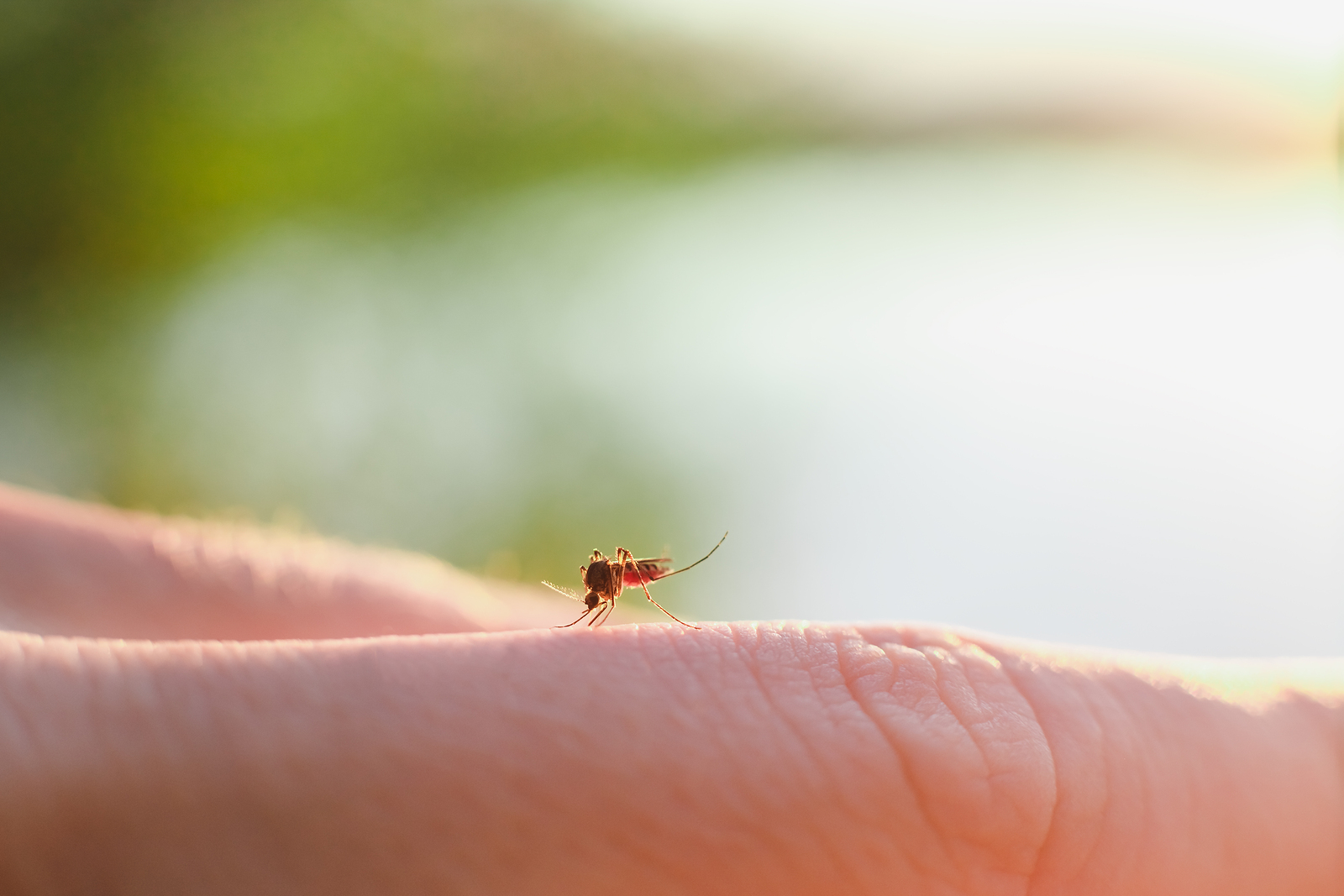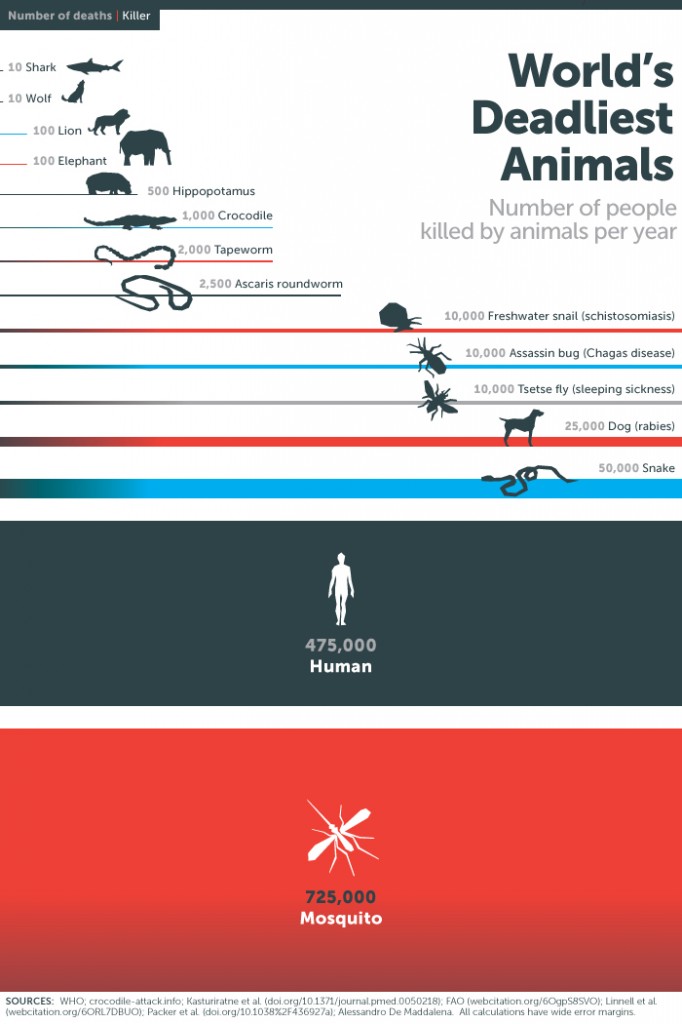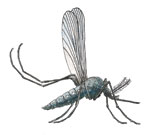READY TO GET STARTED?
REQUEST A FREE ESTIMATE
Fill out the form below or call (888) 466-7849 for a free, no-obligation estimate.

The South is known for many things like warm weather, sweet tea, and southern hospitality. Unfortunately, the south is also known for another thing – mosquitoes! Mosquitoes thrive in warm, humid climates like we have here in the southern United States. As the weather warms, mosquito season begins and peaks in the mid-summer months. Mosquitoes can breed in less than 1 inch of water so the South offers them a multitude of habitats to expand their populations.
Mosquito bites cause irritation and itching of the skin. Besides this nuisance, mosquitoes can also transmit diseases that can threaten the health of both humans and animals. Here are some of the most common diseases that can be spread by mosquitoes:
Now that you know some of the diseases you can contract from mosquitoes what can you do to prevent them? Avoiding mosquito bites is the #1 way to prevent all of the diseases mentioned above. Check out these tips to avoid mosquito bites and help keep them away from yourself and your home.

Mosquitoes are known carriers of several viruses, transmitting disease and parasites to people and animals that come in contact with them via painful bites. While some of these diseases don’t pose serious health risks, others can be deadly (over one million people die each year from mosquito-borne diseases, according to the AMCA!). Here are 3 common mosquito diseases you should be cautious of this summer:
First discovered in 1947, Zika, a mosquito-borne virus, originated in Uganda, Africa. Shortly after, outbreaks of Zika were detected throughout tropical areas in Africa, Southeast Asia, and the Pacific Islands, according to the CDC. Now, mosquitoes carrying Zika have been identified in many countries, including the U.S.
Primarily transmitted by the Aedes species, infected mosquitoes can spread Zika to humans and animals through bites. These mosquitoes are active during daytime and evening hours. Zika can also be sexually transmitted from one infected partner to another, from pregnant women to unborn babies, and through blood transfusions.
Common symptom of Zika include rash, fever, joint and muscle pain, headache, and/or red eyes and can last for up to a week, but many infected won’t show any symptoms at all. Zika is dangerous specifically for pregnant women as it can cause birth defects, a condition called Microcephaly, in fetuses. This can cause brain and eye defects, hearing deficits, and impair growth.
Because there’s currently no vaccine to treat and/or cure Zika, the best way to protect yourself is by preventing mosquito bites. Keep arms and legs covered in loose, light-colored clothing when outdoors and use insect repellent. Repair or replace missing or damaged window and door screens at home and keep them closed as often as possible. Control mosquito populations around your home by getting rid of adult mosquitoes as well as reducing mosquito reproduction with home mosquito treatments from a licensed pest control company. Most companies offer eco-friendly mosquito treatment options that are family and pet-friendly, if having your yard treated with chemicals is a concern. If pregnant, the CDC advises to avoid traveling to countries with known Zika outbreaks – see the list here – and refrain from unprotected sex.
Check with your doctor to get tested. To minimize symptoms, drink lots of fluids, get plenty of rest, reduce fever or pain with over-the-counter pain medicines (avoid aspirin), and prevent additional mosquito bites. If you’re bitten by a mosquito once infected, you can pass Zika to other mosquitoes, who will then infect someone else – increasing the spread of Zika. If you’re pregnant and suspect you have Zika, contact your physician immediately.
The first occurrences of West Nile in the U.S emerged in New York in 1999 with 62 confirmed cases and 7 human deaths, according to the AMCA. West Nile virus is a mosquito-borne virus carried by many different mosquitoes, one of the most common being the Culex species.
West Nile is most often transferred from birds to mosquitoes, and then from mosquitoes to humans and animals through bites.
Symptoms may develop 3-14 days after bitten. Typically only 20% of people infected with West Nile virus will experience symptoms which include headache, body aches, and fever and usually last a week or less. Rarely, the virus develops into West Nile encephalitis which can cause high fever, neck stiffness, disorientation, coma, muscle weakness, convulsions, paralysis, and sometimes death. This is most common in people over the age of 50.
Like Zika, there is no vaccine for West Nile virus. Prevent the virus by preventing mosquito bites.
See your doctor. A blood test can determine if you’re infected with West Nile virus. If symptoms are severe, hospitalization may be necessary.
Dengue, a mosquito-borne virus, is the leading cause of illness and death in the tropics and subtropics according to the CDC (400 million people infected each year). While it rarely occurs in the U.S., it’s important to be aware of dengue while traveling to popular tourist destinations like Puerto Rico, parts of Central and South America, Southeast Asia, and the Pacific islands. Dengue is carried by the Aedes aegypti and Aedes albopictus mosquito species which are found throughout the world.
Mosquitoes carrying dengue infect humans through bites and infected humans can infect other mosquitoes, when bitten.
Most cases of dengue in the U.S. were acquired through travel abroad. Symptoms include severe headache, high fever, eye pain, joint pain, muscle pain, and rash. Severe cases can cause stomach pain, vomiting, difficulty breathing, and bleeding from gums and/or nose.
Mosquito bite prevention is key when traveling to areas with known dengue outbreaks as there is no vaccine for dengue or medications to treat it. It’s especially critical for people with dengue to avoid mosquito bites so the disease isn’t spread from person to another mosquito.
If symptoms are mild, lots of rest and fluids are recommended. For more severe symptoms, contact your health care provider immediately.
Bill Gates recently wrote “The Deadliest Animal in the World” on his blog, ‘gatesnotes’. In this article, Mr. Gates quotes some pretty startling statistics about the dangers of mosquitoes and their threat to humans. Mosquitoes kill more people each year than any other animal in the world. How’s that for the tiny, annoying bug that we often sarcastically refer to as the “state bird”?!

Source: gatesnotes “The Deadliest Animal in the World“
There are over 2,500 species of mosquitoes around the world (covering every region except Antarctica). Besides termites and ants, mosquitoes outnumber every other animal.
Mosquitoes can carry malaria, dengue fever, yellow fever, West Nile, and encephalitis. Malaria alone threatens half of the world’s population and is responsible for killing more than 600,000 people each year. Dengue fever causes serious illness and death, especially among children. Cases of dengue fever were discovered in Florida last year. Read more on Bill Gates recent trip to Indonesia to learn more about the fight against dengue fever HERE.
We encourage you to read Bill Gates full blog on the dangers of mosquitoes. For more information on what you can do to control mosquitoes around your home visit https://www.callnorthwest.com/pest-control/mosquito-control/
 Take Back Your Yard!Don’t let mosquitoes suck the fun out of your Summer!
Take Back Your Yard!Don’t let mosquitoes suck the fun out of your Summer!
HABITS
THREATS
OTHER PESTS TO LOOK OUT FOR:
PREVENTION
Enjoy your yard this Spring and Summer. Call Northwest Exterminating for more information on our Green Mosquito Program!
With our commitment to healthier living and working environments, we at Northwest understand the importance of good pest management for personal health. Living in a hygienic environment and minimizing exposure to unwanted pests can literally save lives. For instance, the lives of twenty-five million Europeans during the Late Middle Ages were claimed by fleas that had spread the bubonic plague. They managed this feat by using another pest as a host – rats! Modern improvements on hygiene, sanitation and pest management have dramatically reduced the impact of this disease.
Another more common disease brought on by insects is Lyme disease. This disease is carried by the deer tick in the form of a bacterium called Borrelia bugdorferi. If a deer tick bites you, the bacterium enters the bloodstream and will lead to skin rash and in extreme cases, paralysis. When caught early, antibiotics can eliminate the bacteria before it causes furthermore harm.
Mosquitoes in particular can carry a host of diseases such as dengue fever, malaria, pogosta disease, and West Nile virus. They carry similar traits in that when infected, a person will experience a fever indicating that more serious effects are on the way such as meningitis or arthritis. All these diseases can lead to death if not caught or treated properly. For some of these diseases, the best form of prevention is pest management. Northwest Exterminating provides solutions to reduce the presence of mosquitoes in and around your home or work environment.
If you come in contact with a pest and feel you may have been exposed to any disease, be sure to immediately seek medical attention. Many of these diseases, as well as others such as malaria or rabies can be treated when caught early.
Melissa Brown
[email protected]
Sources:
http://www.si.edu/Encyclopedia_SI/nmnh/buginfo/diseases.htm
http://en.wikipedia.org/wiki/List_of_diseases_caused_by_insects